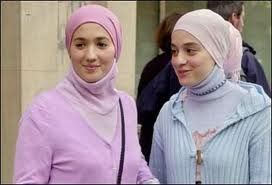Women in Turkey Turkey is an interesting example, from the aspect of the position of women, because it is a country which is influenced by all the contradictions of globalization and traditions.
First of all, the great majority of the population in Turkey is Moslem. Today, women are observed in the forefront of various echelons of the administration of the state.
However, there are still inequalities between women and men, and also between women from different sectors of society, in accessing important development sources, such as education, health and employment.
For many years the position of women in society has improved gradually. Although there are some decrees in violation of the equality of men and women in the law, significant steps have been taken in recent years to alleviate this discrimination.
A national mechanism has been established and some laws have been amended. The number of Women's Studies Centers set up in universities have reached 13, a Woman's Library was founded and a number of projects were put into practice by the governmental and non-governmetal organizations.
Most importantly, a sensitivity has been created on the subject of discrimination against women, and this issue began to be perceived as a problem which should be discussed. Turkey has participated in all the international conferences on the subject of women and has signed many international agreements directly or indirectly related to women.
Turkey also accepted without reservations the Action Platform which was adopted at the Fourth World Women's Conference held in Beijing in 1995, in which she participated with a large delegation completely composed of women. By the year 2000, the Republic of Turkey represented by the State Minister at the Conference undertook: •
To increase the ratio of literacy among women to 100 percent, • To decrease the maternal-child mortality by 50 percent, • To make the eight year primary education compulsory, and • To remove the reservations included in the Charter for the Elimination of Discrimination Against Women (CEDAW).
In accordance with these undertakings, the compulsory primary education was extended to eight years and the reservations at CEDAW were removed.














.jpg)




0 comments:
Post a Comment